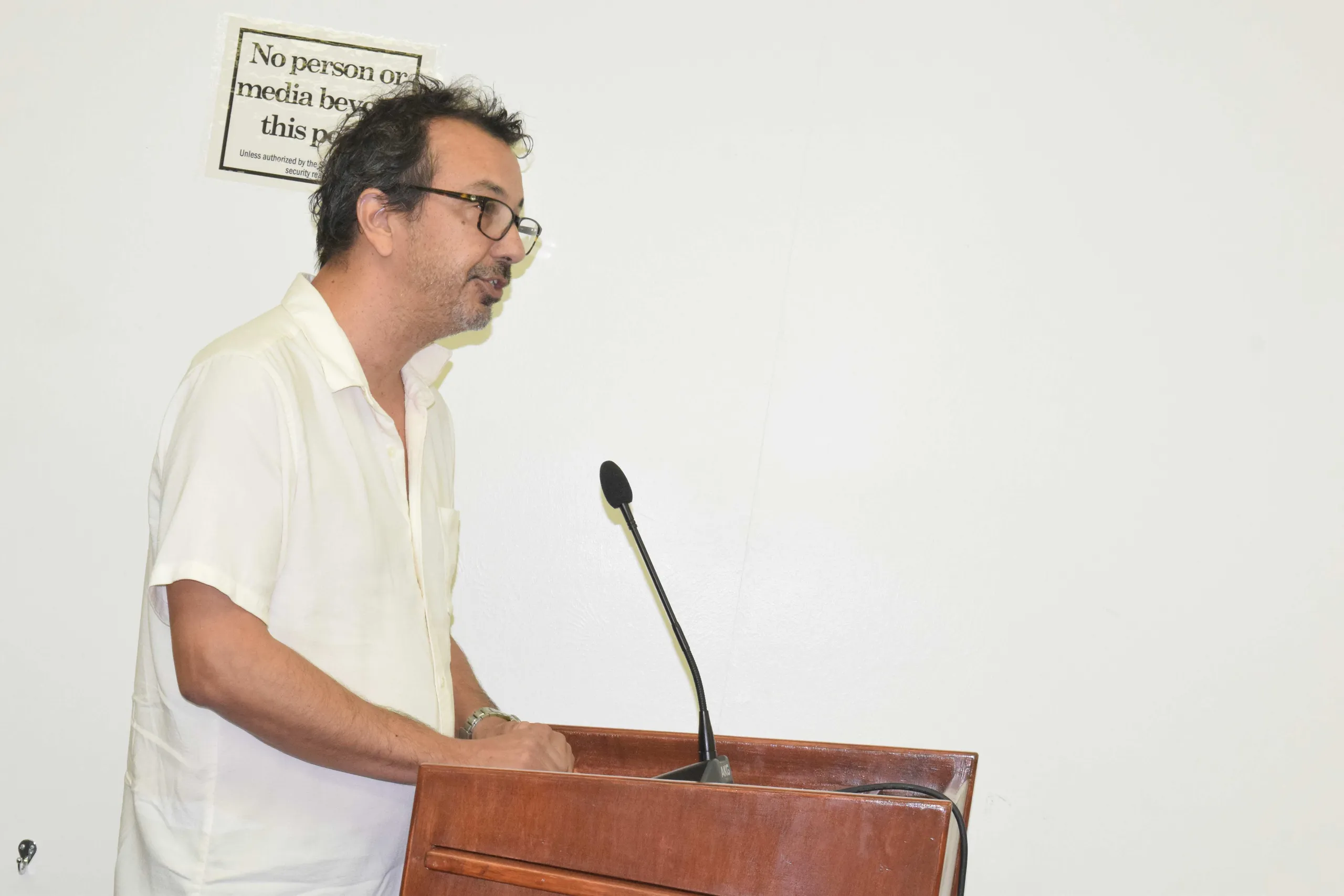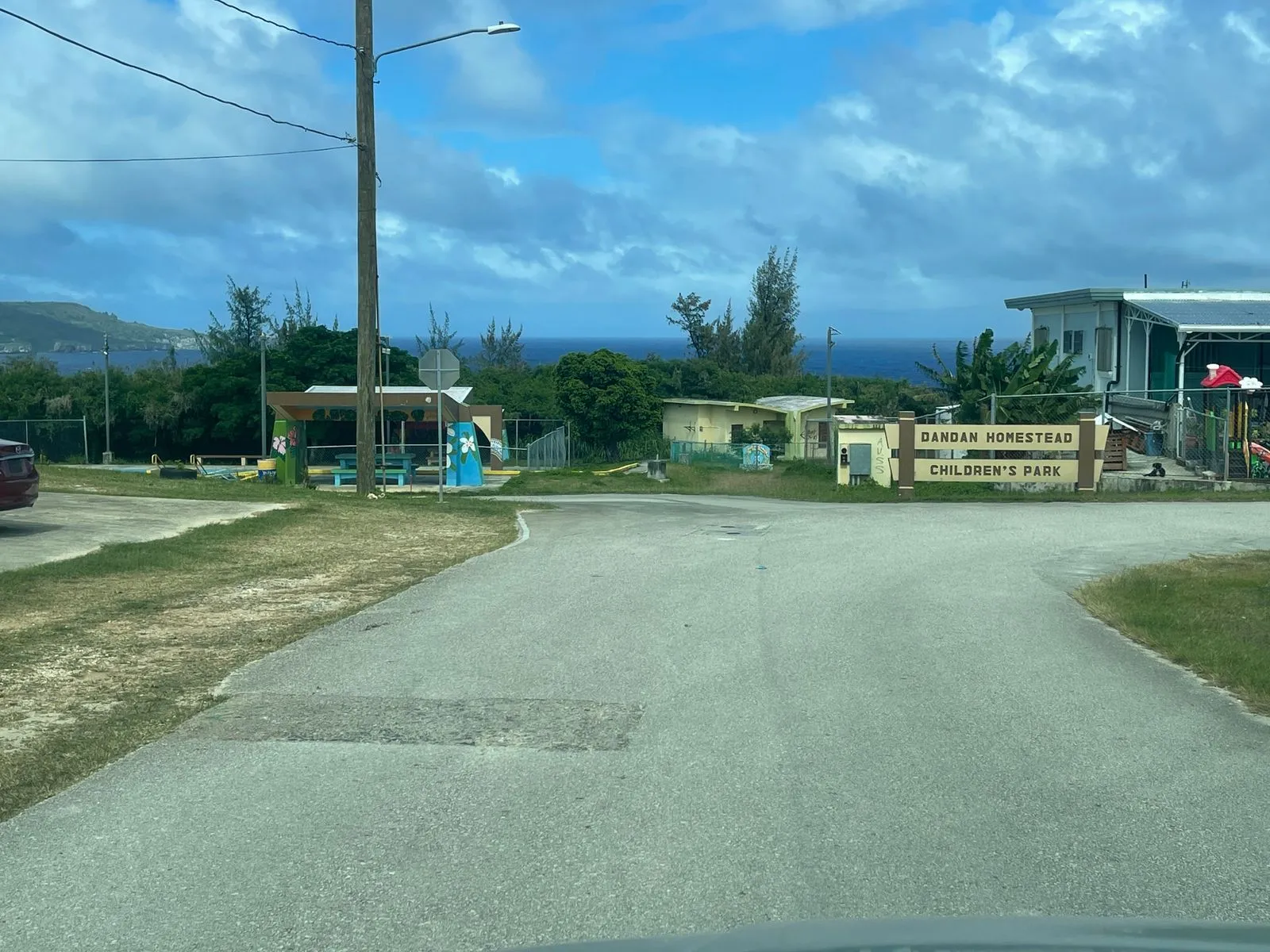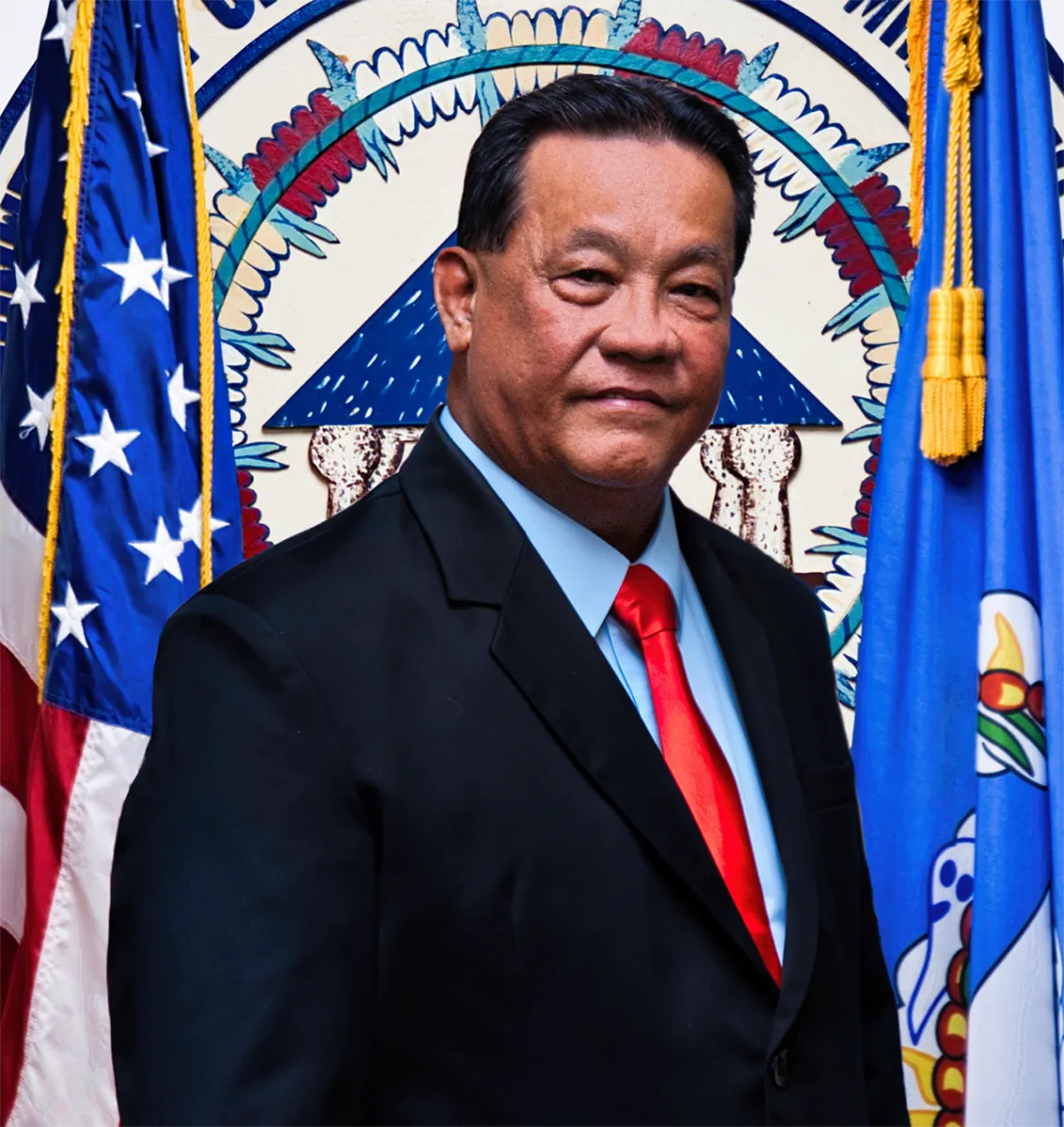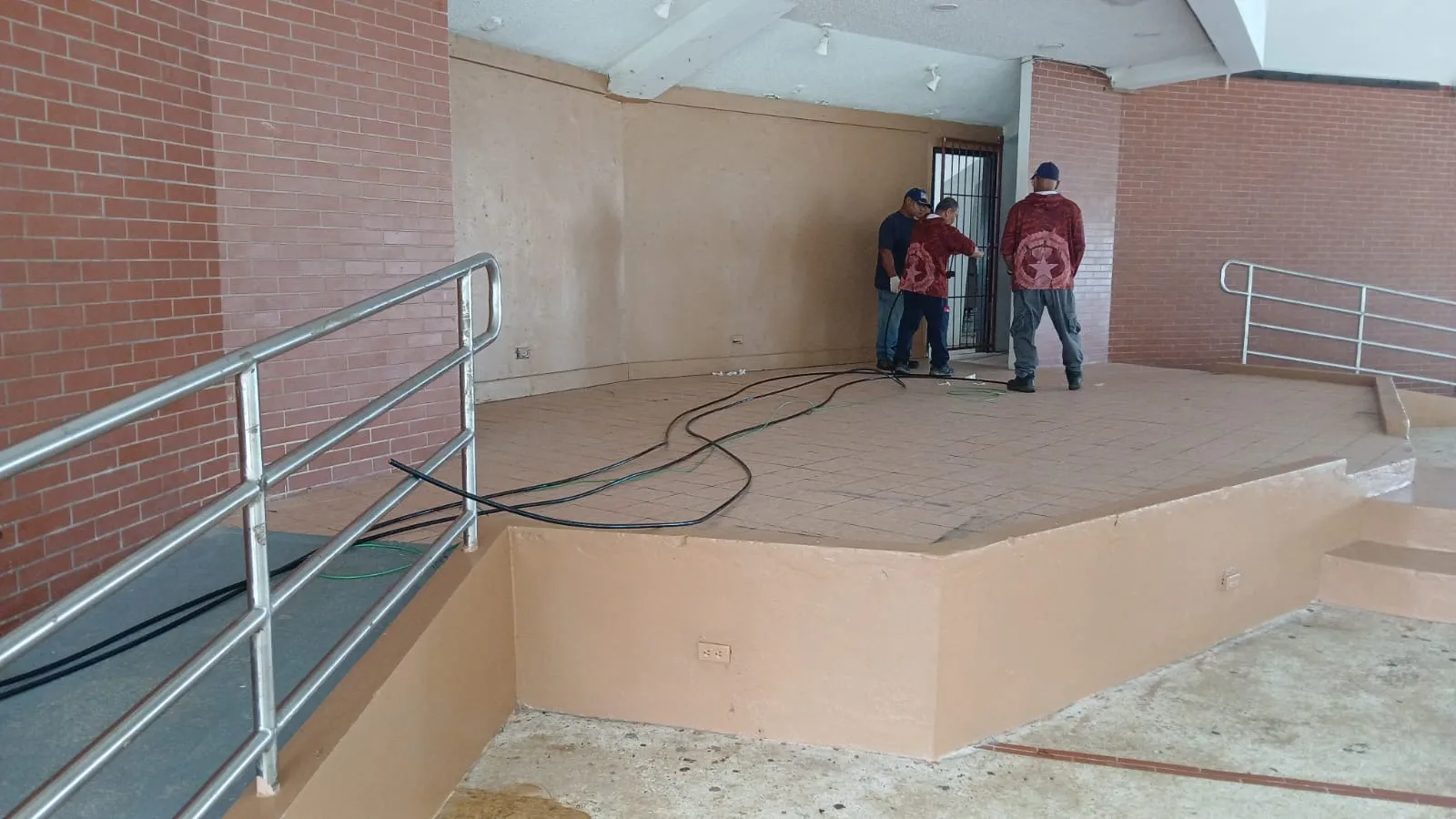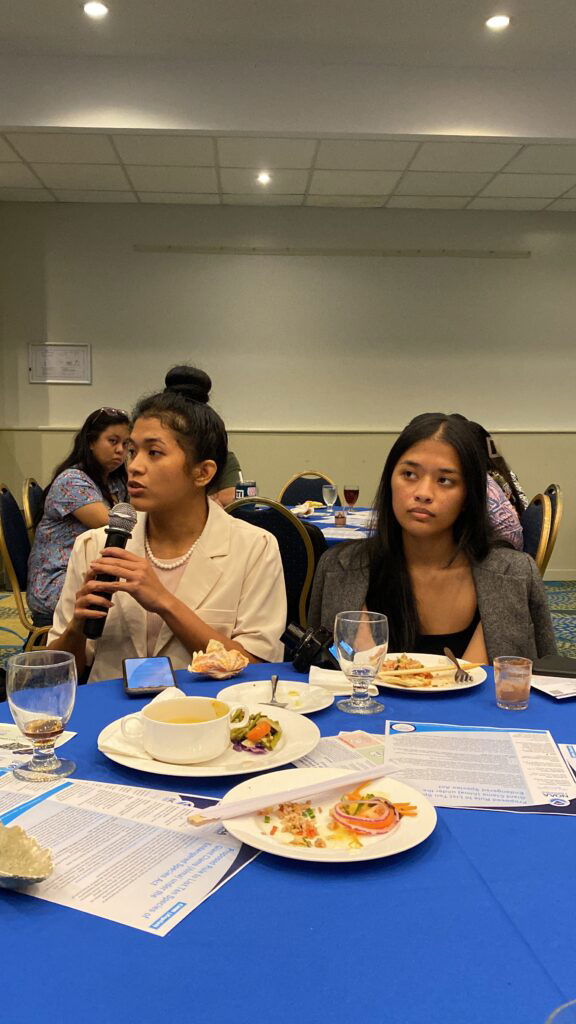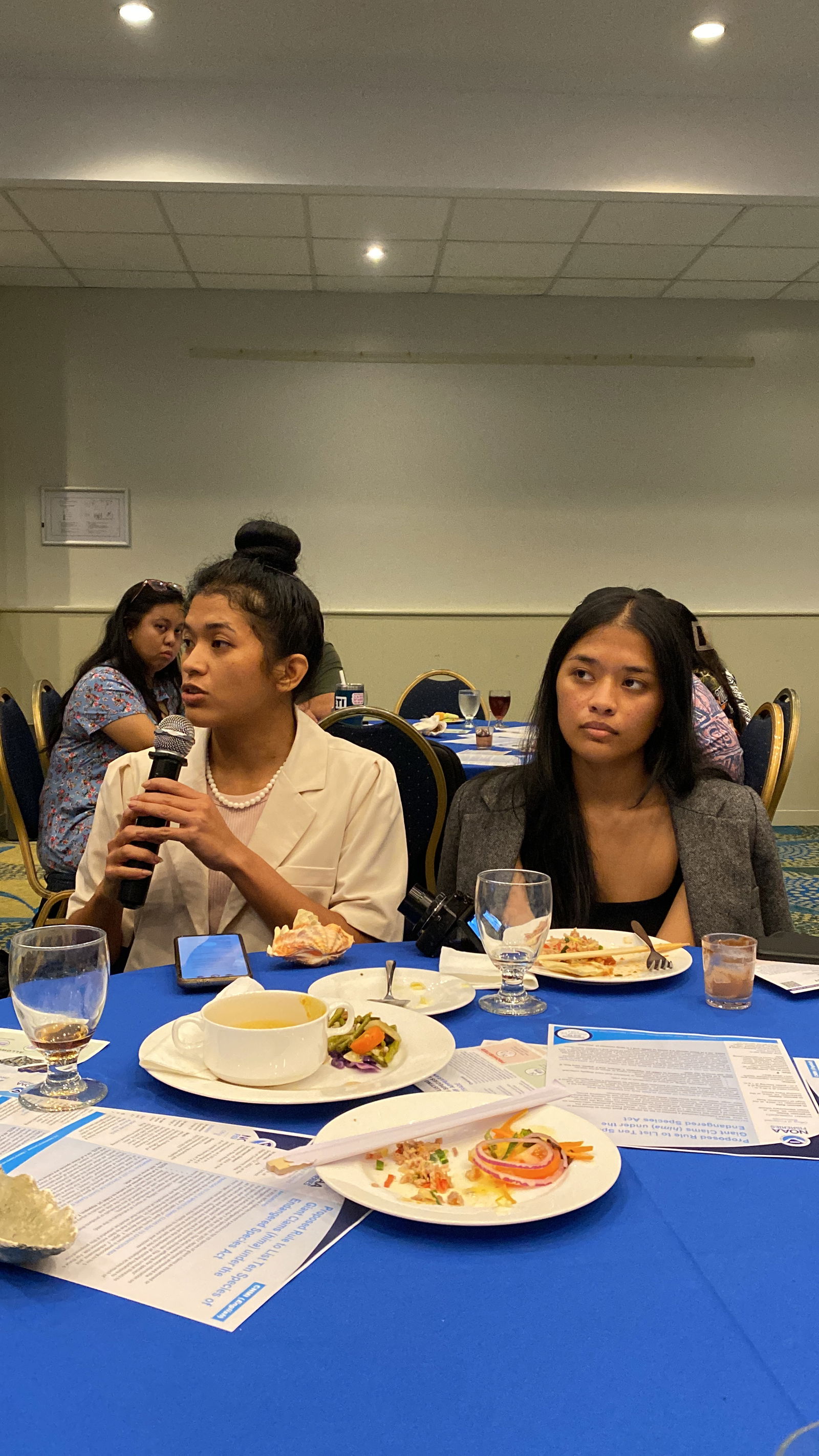
Kalani Reyes is concerned that the proposed rule changes, which would list certain giant clams as endangered or extinct, will impact local jewelry makers.
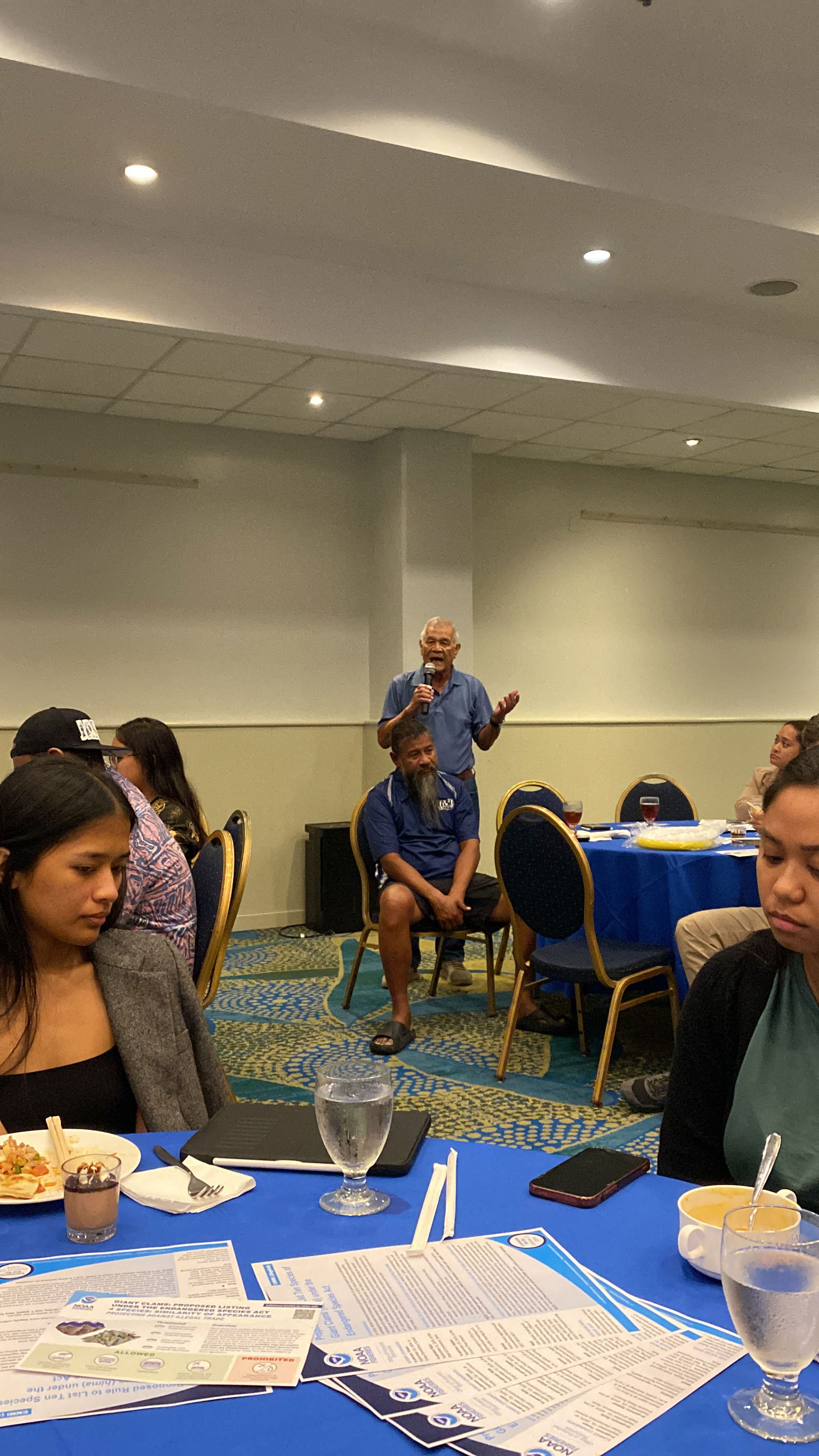
Former Rep. Juan I. Tenorio, a lifelong fisherman, speaks at the NOAA public meeting.
AT a NOAA Fisheries public meeting at the Crowne Plaza Resort on Thursday, Sept. 19, local residents shared their concerns regarding a proposed rule change for giant clams that could list five species as endangered and one species as threatened.
NOAA Fisheries is also seeking to regulate the import and export of four separate clam species because they have “similarity of appearance” to the at-risk clam species.
According to John Rippe of NOAA Fisheries, the process to list 10 clam species as endangered or threatened began with a petition in 2016.
The following year, NOAA conducted a status review of some of the clams to determine the species’ “current and future extinction risk.”
Based on the status review, five clam species are recommended to be listed as endangered: Hippopus porcellanus, Tridacna derasa, Tridacna gigas, Tridacna mbalavuana and Tridacna squamosina.
One clam species, Hippopus hippopus, was recommended to be listed as threatened.
Rippe said Hippopus hippopus and Tridacna gigas existed in these islands during prehistoric times, but may have gone extinct before humans arrived or shortly after their arrival. He said there are “few if any” left in the wild in the Marianas.
As for Tridacna derasa, it is locally known as the “Palauan giant clam” and was introduced here on several occasions, “but very few have survived in the wild,” Rippe said.
If the rule change takes effect and the species are listed as endangered, it would become illegal to harvest these species of clams; import and export the clams or their derivative products; possess or sell individual clams or their products; release captive clams into the wild; and alter the species’ habitat in a way that results in injury or death of the species.
There are also four clam species that NOAA would like to “protect against illegal trade” because of their “similarity of appearance” to at risk clams, according to a media release.
The species of “similar appearance” are Tridacna crocea, Tridacna maxima, Tridacna noae, and Tridacna squamosa.
NOAA said it wants to prohibit “only the import and export of parts and products of these species.”
Even if the rule change is implemented, Marianas residents would still be allowed to harvest these four specific species; sell their shells, meat, and products in Guam, the CNMI, American Samoa and other places NOAA has jurisdiction; raise them using aquaculture; and import or export live or intact clams.
However, NOAA would not allow residents to import or export clam meat, pearls, or shell jewelry carvings from Tridacna crocea, Tridacna maxima, Tridacna noae or Tridacna squamosa.
Rippe said once the meat and shells of Tridacna crocea, Tridacna maxima, Tridacna noae, and Tridacna squamosa are taken from the animal, they look “very similar” to species that are closer to going extinct, such as Tridacna gigas.
At the public meeting, residents hoped that the proposed rule change would not affect local fishing or jewelry practices.
Lifelong fisherman and Tanapag resident Juan I. Tenorio asked why giant clam species like Tridacna gigas would need federal protection when they aren’t locally present.
“I have never seen a giant clam in Saipan,” said Tenorio, a former House member. “I have seen different colors [of clams], but not to the point that you can say they’re giant.”
He also noted that the federal government has jurisdiction over some of the Northern Islands, such as Uracas and Maug, as part of the Marianas Trench Marine National Monument.
He said he prefers local control of marine resources so that residents can continue to pass down their fishing culture.
“In the CNMI, we only have three things: the people, the land, and the water,” he said. “Our life is either you farm or you go find life for your family out in the water. In the CNMI, we don’t have gold, we don’t have silver, we don’t have oil — all we have is that water. We have our own culture of conservation systems that we teach our kids. I am not going to dispute your findings, it’s just that it is sad to continue to prohibit our life by cutting us from eating all these clams.”
Kalani Reyes, a resident of Saipan, said she was concerned for local jewelry makers.
“We have folks here who are going to be significantly impacted by the part about prohibiting import and export,” she said. “I went to the Festival of Pacific Arts and Culture this year in Hawaii. The CNMI sent a sizeable delegation. A number of Pacific Island countries and territories were [also] there. One of the things we practice when we meet up is we give gifts, we bring things to trade. This would significantly impact shell carvers, jewelry makers, cultural practitioners, [so] I hope that we take this into consideration.”
Another resident, Harley Eriich, said federal involvement in wildlife regulation can sometimes be necessary.
“Growing up in San Antonio, there were so many types of marine life, but because of unchecked practices that were done there — using Clorox to harvest octopus or using dynamite to go fishing — if you leave those things unchecked, eventually somebody is going to step in and say, ‘This is how you should treat your land,’ ” Eriich said. “If we’re so adamant about taking care of our land, I think we should educate our own people.”
The public can still submit comments to NOAA online at https://tinyurl.com/clam-comments/.
You can also mail your comments to John Rippe at the National Marine Fisheries Service, 1315 East-West Highway, Silver Spring, MD 20910, Attn: Giant Clams Proposed Listing Rule.
To read the proposal, go to https://tinyurl.com/proposed-rule-change



